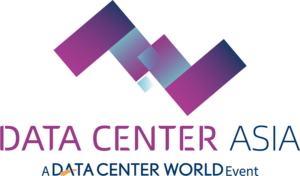As digital transformation accelerates across industries, the importance of data center security has emerged as a critical concern for organizations. With cyber threats looming larger than ever, understanding how to prevent breaches and protect sensitive information is essential for sustaining business operations. In the context of Indonesia data centers, a robust approach to data security is necessary to address the unique challenges posed by this rapidly evolving landscape.
By the way, Data Center Asia 2025 is now open for registration with free admission fee for industry visitors. Connect with industry leaders in person and explore the latest innovations in how to prevent breaches and protect data.

Understanding the Threat Landscape
The first step in enhancing data center security is recognizing the various types of threats that can compromise sensitive data. Cyber attacks can come in many forms, including phishing schemes, ransomware, and insider threats. By understanding these risks, organizations can develop effective data security solution tailored to their specific needs. Investing in cybersecurity measures—such as firewalls, intrusion detection systems, and antivirus software—creates a fortified perimeter around sensitive information housed in Indonesia data centers.
Moreover, regular security assessments are crucial for identifying vulnerabilities within existing infrastructures. By conducting audits and penetration testing, organizations can pinpoint weaknesses that adversaries may exploit, allowing them to strengthen their defenses before breaches occur.
Implementing Comprehensive Data Security Solutions
A multi-layered approach to data center security is vital for safeguarding sensitive information effectively. This includes not only technological solutions but also physical security measures. For instance, controlling access to facilities through biometric authentication and surveillance helps ensure that only authorized personnel can enter critical areas.
Additionally, employing data encryption both at rest and in transit significantly mitigates the risk of data exposure. Encryption transforms sensitive information into unreadable code, meaning that even if unauthorized users gain access, they cannot interpret the data without the required decryption keys.
Educating employees about security protocols and the importance of vigilance can further enhance overall security. Regular training sessions can empower staff to recognize potential threats, reinforce the significance of strong password practices, and establish a culture of cybersecurity awareness across the organization.
The Role of Compliance in Data Security
Compliance with regulatory frameworks such as GDPR or local laws governing data protection is another important aspect of data security. Adhering to these regulations not only minimizes legal risks but also strengthens an organization’s commitment to safeguarding customer data. By aligning their security practices with compliance requirements, organizations can build trust with clients and stakeholders alike.
Conclusion
The need for effective data center security is paramount in today’s interconnected world, particularly for Indonesia data centers. As organizations continue to navigate the complexities of data management, attending DCA 2025 will provide invaluable insights into the latest trends and innovations in data security solutions. This exhibition is an excellent opportunity to connect with industry leaders, discover advanced security technologies, and learn best practices to protect your data effectively. Don’t miss the chance to elevate your data security strategies at Data Center Asia.



